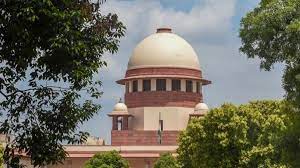Ahmedabad
(Head Office)Address : 506, 3rd EYE THREE (III), Opp. Induben Khakhrawala, Girish Cold Drink Cross Road, CG Road, Navrangpura, Ahmedabad, 380009.
Mobile : 8469231587 / 9586028957
Telephone : 079-40098991
E-mail: dics.upsc@gmail.com

Surrogacy (Regulation) Amendment Rules, 2024
News: Recently, the Union Ministry of Health and Family Welfare amended the surrogacy Rules to allow couples to use donor eggs or donor sperm for surrogacy.
Background:
• The amendment was introduced following several petitions and court cases challenging the previous rules. For instance, the Supreme Court received petitions across the country after it allowed a woman with Mayer-Rokitansky-Kuster-Hauser (MRKH) Syndrome, a rare congenital disorder that affects the reproductive system and can cause infertility, to avail surrogacy with a donor egg.
• Prior to this, surrogacy rules allowed the use of donor eggs, but not sperm.
Key features:
• Use of Donor Gametes: The amendment allows the use of donor gametes (eggs or sperm) in cases where the District Medical Board certifies that either the husband or wife constituting the intending couple suffers from a medical condition necessitating the use of a donor gamete. However, the use of donor gametes has raised concerns about the rights of the donors and the legal implications of using donor gametes.
• Single Women and Surrogacy: The amendment stipulates that if a divorced or widowed woman opts for surrogacy, the egg has to come from the mother. However, it does not allow a single, never-married woman to use surrogacy for having children.
• Medical Conditions and Surrogacy: The amendment keeps surrogacy open to older women as well as those who cannot produce eggs because of certain medical conditions. However, the rule change is not applicable for widowed or divorced women. If a divorced or widowed woman opts for surrogacy, the egg has to come from the mother. It raised concerns about the health risks associated with surrogacy in older women and those with certain medical conditions.
Surrogacy in India:
• Surrogacy comes under the reproductive choices of women and it is included as a fundamental right under the purview of Article 21 of the Indian Constitution.
• Surrogacy (Regulation) Act (2021): It governs the practice and process of surrogacy in India. It provided a gestation period of ten months from the date of coming into force to existing surrogate mothers’ to protect their wellbeing.
• Assisted Reproductive Technology (Regulation) Act: It was enacted for regulation and supervision of the assisted reproductive technology clinics and banks. Under the Act, the services can be made available to a woman above the age of 21 years and below the age of 50 years and to a man above the age of 21 years and below the age of 55 years. ART procedures include gamete donation, intrauterine insemination, and invitro fertilization or IVF.
Conclusion
• The Surrogacy (Regulation) Amendment Rules, 2024, represents a significant step forward in making surrogacy more accessible to couples facing medical issues.

Address : 506, 3rd EYE THREE (III), Opp. Induben Khakhrawala, Girish Cold Drink Cross Road, CG Road, Navrangpura, Ahmedabad, 380009.
Mobile : 8469231587 / 9586028957
Telephone : 079-40098991
E-mail: dics.upsc@gmail.com
Address: A-306, The Landmark, Urjanagar-1, Opp. Spicy Street, Kudasan – Por Road, Kudasan, Gandhinagar – 382421
Mobile : 9723832444 / 9723932444
E-mail: dics.gnagar@gmail.com
Address: 2nd Floor, 9 Shivali Society, L&T Circle, opp. Ratri Bazar, Karelibaugh, Vadodara, 390018
Mobile : 9725692037 / 9725692054
E-mail: dics.vadodara@gmail.com
Address: 403, Raj Victoria, Opp. Pal Walkway, Near Galaxy Circle, Pal, Surat-394510
Mobile : 8401031583 / 8401031587
E-mail: dics.surat@gmail.com
Address: 303,305 K 158 Complex Above Magson, Sindhubhavan Road Ahmedabad-380059
Mobile : 9974751177 / 8469231587
E-mail: dicssbr@gmail.com
Address: 57/17, 2nd Floor, Old Rajinder Nagar Market, Bada Bazaar Marg, Delhi-60
Mobile : 9104830862 / 9104830865
E-mail: dics.newdelhi@gmail.com